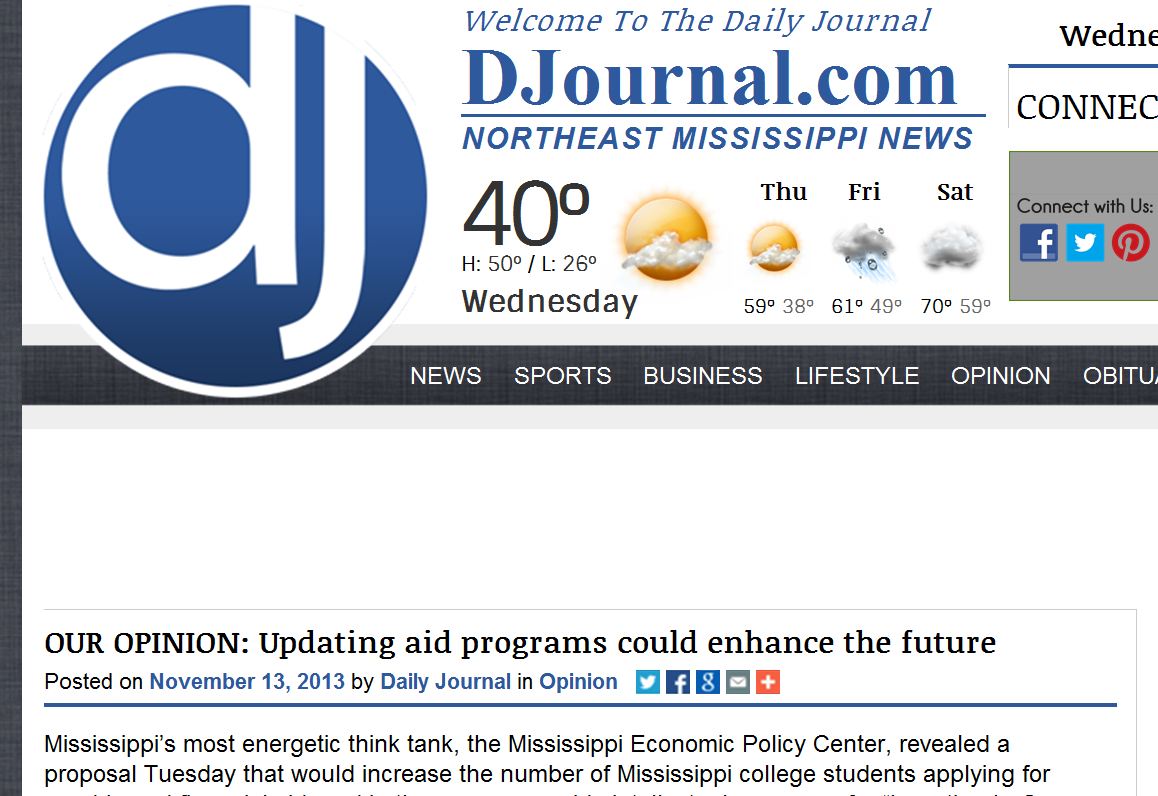Northeast Mississippi Daily Journal – November 13, 2013
Mississippi’s most energetic think tank, the Mississippi Economic Policy Center, revealed a proposal Tuesday that would increase the number of Mississippi college students applying for need-based financial aid, and in the process provide intellectual resources for “Investing In Our Future,” the program name.
In an editorial board meeting with the Daily Journal, MEPC chief Ed Sivak and policy analyst D. Polk outlined a plan that would rearrange and partially restructure the three main state-funded financial aid programs for college students to provide more assistance based on financial need. These programs, their income components and the dollar amount of aid haven’t changed since the mid-1990s, and yet the cost to students of a higher education in Mississippi has risen dramatically as state support has waned.
Only 15 percent of state financial aid for higher education in Mississippi – the nation’s poorest state – is based on need. That compares with 71 percent nationally. Something’s out of kilter in our approach, especially with ever-rising tuition.
In summary, MEPC wants to maximize the number of eligible low- and moderate-income students applying for financial aid with a resulting increase in college enrollment, and, it is hoped, big increases in educational attainment levels. Raising those levels is critical to the state’s economic future.
The programs’ costs would rise, but the outcomes would be exceptionally better:
• Allow students who receive Mississippi Tuition Assistance Grants to also receive Pell grants, a federal assistance program. MTAG recipients currently can’t receive both. Up to 38,572 additional students would be eligible for MTAG, with a projected cost of $27.906 million.
• Change the spring application deadline for the Higher Education Legislative Plan to the same fall dates as for MTAG and the Mississippi Eminent Scholars Grant, increasing eligible students by 3,828, with an additional cost of $16.590 million.
• Increase to $46,500 from $36,500 the family income limits for HELP program eligibility, potentially adding 4,891 and $21.313 million in costs.
None of the standards would be lowered; increased participation would result from higher numbers of qualified applicants.
Sivak, while acknowledging the unlikelihood for approval of all the changes given budget constraints and program competition, noted persuasively that projected revenue increases for the 2014 and 2015 budget cycles present an inviting legislative situation for some initial steps to be taken.
MEPC’s proposals for increasing educational attainment as an investment in the future deserve a full examination. It’s hard to argue with the underlying premise.


